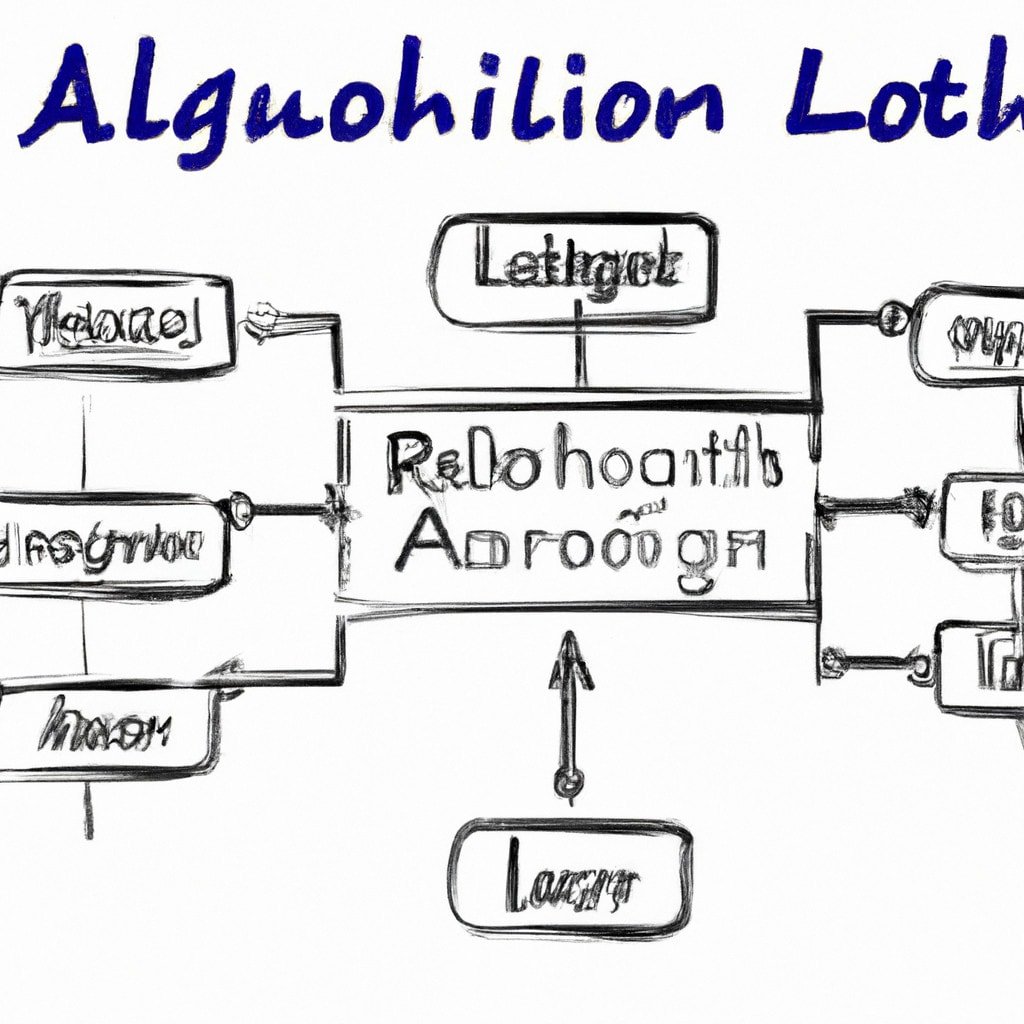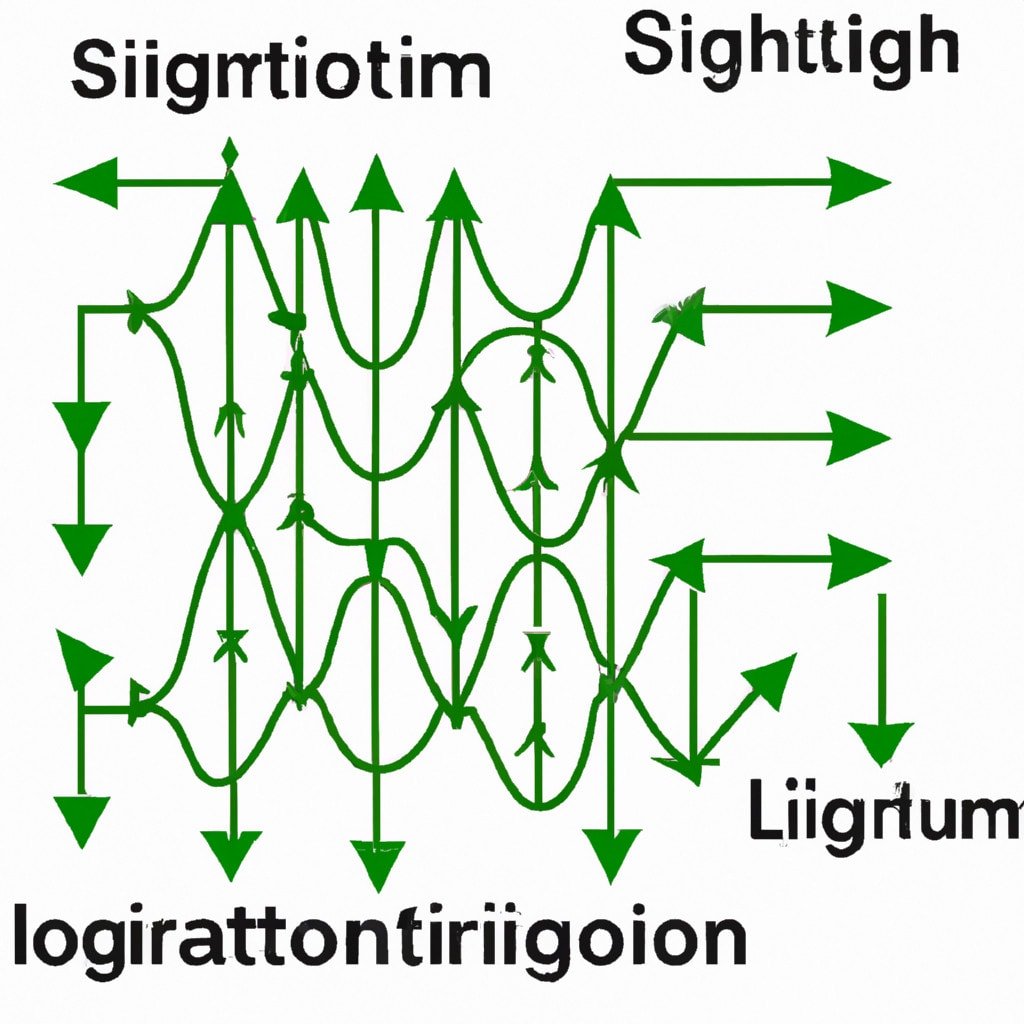Title: Is Genetic Algorithm Artificial Intelligence? Unveiling the Truth
Introduction (Loop Abierto)
Have you ever wondered how nature can inspire technology and help solve complex problems? One such example is the intriguing world of genetic algorithms. But wait! Is genetic algorithm artificial intelligence? This question might be lingering in your mind, and that’s okay! In this post, we will dive deep into this fascinating topic and unravel the truth behind genetic algorithms and their connection to AI.
What is Artificial Intelligence (AI)?
Before understanding the relationship between genetic algorithms and AI, let’s first explore the concept of Artificial Intelligence. AI refers to the simulation of human intelligence in machines programmed to think and learn like humans. This involves a wide range of tasks, from problem-solving and learning to perception and decision-making.
What are Genetic Algorithms?
Genetic algorithms (GA) are inspired by the process of natural evolution- survival and reproduction of the fittest. These algorithms are designed to solve optimization problems by considering a population of possible solutions, which evolve through generations by incorporating concepts such as inheritance, mutation, and selection.
The primary goal of a genetic algorithm is to find the best solution for a given problem by evolving the population over time, based on their fitness scores. The fittest candidates are more likely to mate and produce offspring, helping improve the overall quality of the population.
So, Is Genetic Algorithm Artificial Intelligence?
Yes! Genetic algorithms can be considered a subset of artificial intelligence, specifically under Evolutionary Computation, which uses bio-inspired mechanisms to solve problems. GA represents a type of AI methodology that focuses on optimization, search, and problem-solving techniques.
Now that we have established that genetic algorithms indeed fall under the domain of AI, let’s explore some of its applications and benefits.
Applications of Genetic Algorithms
Genetic algorithms have been widely used in several fields, including:
1. Engineering: GAs have been applied to design optimization, control systems, and robotics, where they help engineers find the optimal solution for various challenges.
2. Data Science: GAs can be used in feature selection, parameter tuning, and model optimization, which significantly improves the performance of machine learning algorithms and predictive models.
3. Bioinformatics: GAs have found significant use in gene expression data analysis, protein structure prediction, and DNA sequence alignment, assisting scientists in understanding biological processes and diseases better.
4. Finance: In financial markets, GAs can optimize trading strategies, risk management, and portfolio management, helping investors make informed decisions based on data-driven techniques.
Benefits of Genetic Algorithms
Now that we’ve seen some of the applications, let’s understand why genetic algorithms are advantageous in AI:
1. Flexibility: GAs can be applied to a wide range of optimization problems, irrespective of their scale or complexity.
2. Global Optimization: GAs are less prone to getting stuck in local optima since they maintain a diverse population of solutions, increasing the chances of finding global optima.
3. Parallelism: GAs can efficiently use parallel processing, allowing them to explore multiple solutions simultaneously.
4. Adaptability: GAs can adapt to dynamic environments and cope with changing problem requirements, ensuring successful problem-solving.
Conclusion
So, there you have it! In this post, we have addressed the question: Is genetic algorithm artificial intelligence? By understanding the concepts of AI, genetic algorithms, and their applications and benefits, we can confidently conclude that genetic algorithms are indeed a subset of artificial intelligence.
We hope this post has piqued your interest in the exciting realm of genetic algorithms and AI. As you now know, nature’s wisdom continues to serve as a powerful inspiration for technological advancements, where genetic algorithms play a crucial role in shaping our future. So, the next time someone wonders if a genetic algorithm is artificial intelligence, you’ll have the answer!
Dr Ben Goertzel Reveals When AI Will Control The World
Artificial intelligence and algorithms: pros and cons | DW Documentary (AI documentary)
Is a genetic algorithm considered Artificial Intelligence or Machine Learning?
A genetic algorithm is considered a part of both Artificial Intelligence (AI) and Machine Learning (ML). Genetic algorithms are inspired by the process of natural selection and are used to find approximate solutions to optimization and search problems. They belong to a larger class of AI algorithms called Evolutionary Algorithms.
In the context of ML, genetic algorithms can be used as a technique for optimizing model parameters and feature selection. Thus, they play a role in the broader scope of AI as well as in the specific domain of ML.
What kind of algorithm does the genetic algorithm belong to?
The genetic algorithm belongs to the class of evolutionary algorithms, which are inspired by the process of natural selection and evolution. These algorithms are used for optimization and search problems by iteratively improving candidate solutions based on their fitness scores.
What is the purpose of utilizing genetic algorithms in artificial intelligence?
The purpose of utilizing genetic algorithms in artificial intelligence is to find optimal solutions to problems by emulating the process of natural selection found in biological evolution. Genetic algorithms are a subset of evolutionary algorithms that work with a population of possible solutions, iteratively improving them over time.
The main components of genetic algorithms include:
1. Representation: Encoding potential solutions as a data structure, such as binary strings or gene sequences.
2. Fitness function: Evaluating the quality of each solution by measuring its suitability in solving the problem at hand.
3. Selection: Choosing the best-performing solutions to create offspring through reproduction.
4. Crossover: Combining the genetic material of two parent solutions to produce a new offspring.
5. Mutation: Randomly modifying an individual’s genes to introduce diversity into the population.
Genetic algorithms offer several advantages in artificial intelligence:
– They are efficient in finding global optima for complex multidimensional problems.
– They can be applied to a wide range of problems, including optimization, machine learning, and constraint satisfaction tasks.
– Solutions are robust and adaptive, making genetic algorithms suitable for dynamic environments.
In summary, genetic algorithms play a crucial role in artificial intelligence by providing an effective mechanism to find optimal solutions for complex problems. Their bio-inspired approach offers efficiency, flexibility, and robustness in a variety of applications.
What kind of machine learning does the genetic algorithm belong to?
The genetic algorithm belongs to the category of evolutionary algorithms, which is a subset of metaheuristic optimization methods in the realm of machine learning. These algorithms are inspired by the process of natural selection and evolution, where solutions to problems evolve through operations such as mutation and crossover.
How do genetic algorithms play a role in the development of artificial intelligence?
Genetic algorithms play a significant role in the development of artificial intelligence (AI), as they serve as a powerful optimization technique inspired by natural evolution. Genetic algorithms are a subset of evolutionary algorithms, which use the processes of selection, crossover, mutation, and reproduction to solve complex problems.
In the context of AI, genetic algorithms can help in various ways:
1. Optimizing machine learning models: Genetic algorithms can optimize the parameters and architecture of machine learning models, such as neural networks, leading to better performance and improved generalization of these models.
2. Feature selection: Genetic algorithms can be used to find the optimal subset of features for a given problem, reducing complexity and improving efficiency in training and evaluation of machine learning models.
3. Natural language processing: Genetic algorithms can be employed in natural language processing tasks like grammar induction, automata learning, or even text summarization.
4. Game playing: In AI game agents, genetic algorithms can be utilized to develop strategies and heuristics for specific game scenarios, enhancing the agent’s ability to perform well against human or other AI opponents.
5. Robotics and control systems: Genetic algorithms can aid in optimizing the design and control strategies of robotic systems, enabling them to adapt to dynamic environments and achieving desired objectives.
6. Planning and scheduling: Genetic algorithms can effectively solve planning and scheduling problems, which require finding an optimal sequence of actions to achieve specific goals under constraints.
Overall, genetic algorithms are considered a robust and versatile tool in the field of artificial intelligence, playing an important role in optimization, learning, adaptation, and ultimately contributing to the improvement and enhancement of AI systems.
In what ways do genetic algorithms contribute to the advancement of artificial intelligence techniques?
Genetic algorithms contribute significantly to the advancement of artificial intelligence techniques in various ways. Some of the most important aspects of their contribution are:
1. Optimization Problems: Genetic algorithms offer a practical and effective approach to solving complex optimization problems. These types of problems are ubiquitous in AI, such as in machine learning, where finding the best model, parameters, or hyperparameters is crucial for creating efficient and accurate systems.
2. Adaptability: Genetic algorithms are inspired by natural selection and evolution. Their ability to adapt and evolve provides a substantial advantage in dynamic environments or when given incomplete information. This adaptability makes them particularly suited for solving problems with changing requirements, which is often the case in AI.
3. Parallel Computing: Genetic algorithms inherently support parallel computing due to their population-based search method. This makes it easier to leverage powerful hardware and distributed systems to accelerate the search process in AI applications.
4. Handling Noisy Data: Genetic algorithms are robust in handling noisy data or data with uncertainties, which is a common issue in AI. Their stochastic nature allows them to explore different solutions and escape local optima, resulting in better overall performance.
5. Combination of Disparate Techniques: Genetic algorithms can be combined with other AI techniques, such as neural networks or reinforcement learning, to improve their performance. The hybridization of genetic algorithms with traditional AI methods generates more powerful, flexible, and adaptive systems.
6. Wide Applicability: Genetic algorithms are general-purpose search and optimization techniques that can be applied to a wide range of problems in AI, such as pattern recognition, natural language processing, robotics, and game playing. This versatility enables them to contribute to the advancement of AI across multiple domains.
Can genetic algorithms be considered a form of artificial intelligence, and if so, how do they differ from other AI approaches?
Yes, genetic algorithms can be considered a form of artificial intelligence (AI). Genetic algorithms are a subset of evolutionary algorithms that use the principles of natural selection and genetics to solve optimization and search problems. They belong to the broader category of AI called heuristic search methods.
The main difference between genetic algorithms and other AI approaches lies in their problem-solving strategy and inherent inspiration from biological processes. Some key contrasts are:
1. Inspiration: Genetic algorithms are inspired by the process of natural selection, utilizing operations like mutation, crossover, and selection. In contrast, other AI techniques may be based on different concepts, such as neural networks mimicking the human brain, or rule-based systems representing expert knowledge.
2. Search Space: Genetic algorithms explore the solution space using a population-based approach, maintaining multiple candidate solutions simultaneously. As opposed to this, many AI approaches, such as gradient descent, use a single solution to navigate the search space.
3. Optimization: Genetic algorithms excel at solving complex optimization problems where the search space is large, noisy, or discontinuous. Other AI methods, like neural networks, may be more suitable for tasks like pattern recognition or classification.
4. Exploration vs. Exploitation: Genetic algorithms maintain a balance between exploration (searching for new areas of the solution space) and exploitation (refining existing solutions). This differs from other AI algorithms, which might focus more heavily on one of these aspects.
5. Adaptability: Genetic algorithms can adapt to dynamic environments when the problem changes over time. In comparison, some AI techniques may require retraining or adjusting parameters to address the altered scenario.
In conclusion, genetic algorithms are indeed a form of AI with distinct properties derived from their biological inspiration and problem-solving approach. They offer unique advantages in handling complex optimization problems and complement other AI techniques in various applications.



